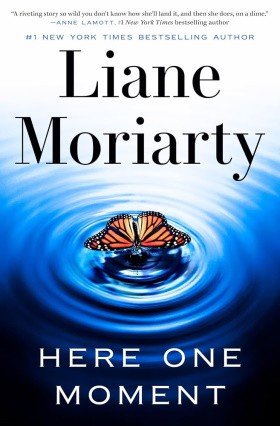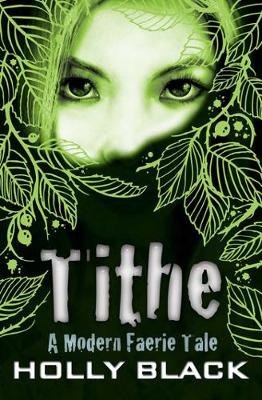“Leo. I just said. Forget about money.”
“If only we could,” says Leo. “But in that case, I would resign.”
The thought of resigning makes his chest expand with air, as if he’s just been released from a chokehold.
“I’d probably ask you if we could please move back to Tasmania,” he says.
“Really?” says Neve. “Interesting. And what would we do there?”
“Well, the kids shouldn’t miss school just because I’m hypothetically dying. We could just…relax. Maybe not so much rushing about, if that’s possible. Maybe it’s not possible. But Oli and I could do the Bay of Fires walk. I’d like to take you for a weekend to that lodge in Coles Bay. And if I’m doing special trips with each of you then I would take Bridie to a musical in Melbourne, that would be so fun.” He considers. “If money is no object, we could do one of those European river cruises!” He’s getting into it now. “I’d call—” He catches himself, stops talking abruptly.
“Who would you call?”
“Doesn’t matter.”
She looks up at him. “Leo, I know who you would call.”
He turns away. “I’ve got work to do and I don’t have a terminal disease, which is good news.”
“I’ve got his number. I can give you his number right now.”
He feels sick. “I don’t want his number. This was hypothetical.”
“Let’s do everything.” Neve stands and puts her hands on his shoulders and gently shakes him. “Every single thing you just said, we can do. Except for the river cruise, you don’t want to do a river cruise, you idiot, you’d go stir-crazy, you’d jump overboard.”
“Neve, we can’t do all those things.”
“Yes we can.” She pokes him in the middle of his chest with her index finger, a little harder than he expects. “Yes. We. Can.”
Chapter 83
I like to tell people my first job was counting gray kangaroos because I think they imagine me in the outback, lying on my stomach, wearing an Akubra hat, peering through a pair of binoculars, and clicking a counter with my thumb each time a kangaroo bounded across the horizon.
The reality was far less glamorous. Reality tends to be far less glamorous.
I was employed by the National Parks and Wildlife Service as a junior biometrician.
A biometrician, if you don’t know, applies statistical analysis to biological data. I was there to help my boss study Australia’s population of western grey kangaroos.
The western grey kangaroo is one of the largest species of kangaroo. They are nicknamed “stinkers” because mature males have an unpleasant smell. During breeding season, the males compete for the females in a kind of boxing contest where they lock arms and try to push each other over, like sumo wrestlers.
Look, I’m not an expert on the western grey kangaroo, I just collected a few “fun facts” because people expect me to be one. The truth is, I could have been counting frogs or crocodiles or tubes of toothpaste. The math would have been the same.
Most of my time was spent at a desk, ecstatically analyzing data. When I first started I used a slide rule. I know this makes me sound ancient. But we all have to sound ancient at some point. Scientific calculators were about to make the slide rule obsolete, but I resisted for longer than most. By the time I left, every desk had a computer.
It was solitary work, but I was well suited to solitary work, and I couldn’t believe I got paid to sit at a desk and do my favorite thing: problem-solving. To be paid to do what I once did so joyfully for free with Dad at the kitchen table! Nobody in my family could believe it either.
There was also occasional fieldwork required, which got me out of the office to see how my models were applied in the real world. I had to travel for my work! It felt very important, although I certainly wasn’t staying in fancy hotels with breakfast buffets but in the corrugated-iron staff quarters of some of Australia’s largest sheep and cattle stations.
Those big open landscapes gave me a not unpleasant sensation of vertigo. I enjoyed the feeling of being small and insignificant. It’s healthy to be reminded of your insignificance.
I enjoyed talking to the farmers’ wives. They were often “city girls,” desperate for company, and once I had overcome my initial shyness, I was pretty chatty (as you would have noticed by now—although if you meet me at a noisy, crowded party, you may still find me odd).
(On that note, I recently watched a fascinating documentary about the making of the charity single “We Are the World,” in 1985. There was the legendary Bob Dylan, surrounded by other “iconic pop stars,” and he looked exactly like me at a party! Kind of hunted. Wanting the ground to swallow him up. Poor darling Bob Dylan! And then beautiful Stevie Wonder helped him overcome his nerves and sing his solo by impersonating Bob’s unique style. He meant, Just be you, Bob Dylan.)
(It’s the answer to many a question: Just be you. It sounds easy, but it seems even icons struggle to be their iconic true selves.)
There was one woman who invited me in for tea and scones. Very thin with wild curly red hair and watery green eyes. Her name was Suzanne. It was clear she was unhappy in her marriage. She reassured me, “He’s not violent.” She lowered her voice and said, “He just shouts, that’s all. I’m not keen on the shouting.”
She told me her mother had said to her, “You’ve made your bed, Suzanne, now you’ve got to lie in it.”
She was older than me and clearly more sophisticated. I could see she was the sort of person who went to galleries and museums and stopped in front of paintings to make intelligent remarks. She didn’t belong in the country. It seemed to me she’d accidentally fallen into the wrong life. In normal circumstances she probably would never have shared such personal information with someone like me, but she was lonely and bored and phone calls can’t replace having another woman sit across the kitchen table from you, drinking your tea and eating scones. The scones, by the way, were rock-hard. The Country Women’s Association and my grandma would not have approved.
I put down my teacup and did something that shocked me.
I asked her if she’d like me to read her palm. I told her my mother and grandmother were well-known palm readers and implied I had the same skills.
It’s interesting when you suddenly behave out of character.
An example: I went tandem skydiving for my sixtieth birthday. It was exhilarating!
Obviously, I will never go skydiving again.
Not if you paid me. I still have nightmares about it.
Suzanne’s was the first palm I ever read. As a child I never mimicked my mother or grandmother by pretending to read palms or see the future. I never read my friend Ivy’s palm. I never read Jack’s palm, not even when he left for Vietnam, which you’d think I would have done if I believed there was any chance it might have told me something.
Not believing had become an important part of my identity. After Dad died, I never asked Mum to read my tea leaves. I swore allegiance to the sensible side of the family. The same side as Dad, Auntie Pat, and Grandpa.





















